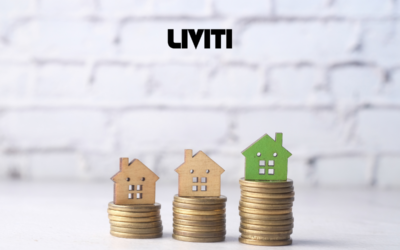The recent RBA cash rate cut from 4.10% to 3.85% in May 2025 marks a critical moment for the Australian property market. When the Global Financial Crisis (GFC) struck in 2008, Australia narrowly avoided a technical recession, yet its housing market experienced a sharp but short-lived correction. The GFC’s ripple effects prompted regulatory and lending reforms, plus a crisis-management playbook that still underpins market stability today. By revisiting what happened then and how prices rebounded, we can better understand and forecast the post-rate-cut landscape of 2025. You can also watch the video below for a detailed explanation about the Australian property market prices during the GFC cash rate cuts, Covid-19 stimulus and the current 2024-2025 global slowdown to better understand the current market conditions.
Property Price Performance during the GFC
- 2008–09 Downturn: National home values fell by around 2.2% from Dec 2008 into March 2009 and March year-to-year change by -6.7%, according to the ABS House Price Index.
National Home Values 2008-09 (Source: ABS)
- Comparative Resilience: Unlike the US and UK where prices plunged double digits, Australia’s milder decline owed to well-capitalised banks and swift policy action.
The GFC dip highlighted the market’s sensitivity to credit availability. Even a modest pull-back in lending coupled with wavering confidence can trigger price falls, underscoring the importance of robust financial buffers.

Why Prices Fell and How They Recovered
Credit Crunch Impact
- Pre-GFC Lending: Banks offered high-LVR loans, fueling rapid price growth pre-2008.
- Post-GFC Tightening: Lenders swiftly tightened criteria, slashing high-LVR and interest-only products. This “credit squeeze” drove buyer caution and price softening.
Rapid Policy Response
- RBA Rate Cuts: The RBA slashed its cash rate by 425 bp between September 2008 and April 2009, reducing mortgage rates by 375 bp and restoring serviceability (RBA Cash Rate History).
Cash Rate cuts between Sep 2008 – April 2009 (Source: RBA)
- Fiscal Support: First-home buyer grants and infrastructure spending buoyed confidence.
- Resulting Rebound: By late 2009, home values had returned to pre-GFC highs, with the National median rise of around 12.1% from December 2008 to December 2009 (Domain).
Aggressive monetary and fiscal stimulus can shorten housing downturns, provided credit continues to flow. Australia’s predominantly variable-rate mortgage market ensured rate cuts passed through swiftly to borrowers.

Key Lessons Adopted Since the GFC
- Stricter Lending Standards
- APRA and banks now enforce tighter serviceability buffers and limit high-LVR/interest-only exposures, reducing systemic risk.
- APRA and banks now enforce tighter serviceability buffers and limit high-LVR/interest-only exposures, reducing systemic risk.
- Household Debt Monitoring
- Regulators continuously track debt-to-income and debt-servicing ratios; when metrics approach thresholds, macroprudential measures are reintroduced.
- Regulators continuously track debt-to-income and debt-servicing ratios; when metrics approach thresholds, macroprudential measures are reintroduced.
- Coordinated Crisis Playbook
- The RBA, Treasury, and APRA maintain ready-to-deploy rate-cut and liquidity facilities, ensuring rapid response to future shocks.
- The RBA, Treasury, and APRA maintain ready-to-deploy rate-cut and liquidity facilities, ensuring rapid response to future shocks.
- Market Vulnerability Awareness
- The GFC underscored that Australian property, though resilient, is not immune to global credit shocks. Buyers and investors now factor in the potential for corrections.
- The GFC underscored that Australian property, though resilient, is not immune to global credit shocks. Buyers and investors now factor in the potential for corrections.
Read More: The ALP Government First Home Loan Deposit Scheme: What It Means for First‑Home Buyers in 2025
Implications for Today’s Market
Tougher Credit but Better Shock Absorption
- Loan Criteria: Modern borrowers face stringent income-and-expense assessments, shielding households from over-leverage.
- Serviceability Buffers: A 0.25 pp rate cut today still boosts median borrowing capacity by $20k–$30k, but under tighter LVR caps, buyers cannot overextend (RBA Cash Rate Data).
Interest Rates as the Primary Lever
- GFC & COVID-19 Precedents: Rate cuts during both crises spurred 5–8% home-price rebounds within 6–12 months (CoreLogic COVID Report, July 2021).
- 2025 Outlook: With further cuts expected, anticipate 3–5% price growth in the first 3-6 months especially in undersupplied markets.
Market Volatility Remains
- Cyclical Corrections: Even post-GFC, Australia saw downturns during COVID-19 and recent rate-rise cycles showing corrections, though contained, still occur.
- Leading Indicators: Auction clearance rates above 62% typically signal upcoming price increases and with current clearance rate standing at exactly 60%, the price surge is likely. (CoreLogic, May 2025 Chart Pack).
Source: CoreLogic, May 2025 Chart Pack
Forecasts & Predictions for 2025–26
- Short-Term (0–6 months):
- National Values: +2-4% gains, led by high-demand capitals and growth corridors (CoreLogic HVI, April 2025).
- Clearance Rates: Climb to 63–65%, reflecting intensified buyer activity.
- National Values: +2-4% gains, led by high-demand capitals and growth corridors (CoreLogic HVI, April 2025).
- Medium-Term (6–12 months):
- Annual Growth: 6–8% nationally, with regionals posting 10–12% due to constrained supply (Domain Forecast).
- Supply Response: Increased dwelling approvals – +13.4% y-o-y in March 2025 (ABS Building Approvals) may temper extremes.
- Annual Growth: 6–8% nationally, with regionals posting 10–12% due to constrained supply (Domain Forecast).
Dwellings Approved March 2025 (Source: ABS)
- Risks & Moderators:
- Macroprudential Reset: Australian Prudential Regulation Authority (APRA) could reintroduce Lon to Value Ratio (LVR) or debt-servicing limits if household debt metrics spike.
- Global Shocks: Renewed global volatility could test the market’s resilience once more.
- Macroprudential Reset: Australian Prudential Regulation Authority (APRA) could reintroduce Lon to Value Ratio (LVR) or debt-servicing limits if household debt metrics spike.
Conclusion
The GFC taught Australia that decisive policy action and prudent lending standards are vital to containing downturns and enabling rapid recoveries. As we enter another rate-cut cycle in 2025, those lessons remain essential. Expect home values to begin climbing within weeks potentially 2–4% in the first quarter and 6–8% by year’s end while stricter credit rules help prevent the excesses that amplified past crashes.
The time is now to make informed decisions and seize opportunities before the market surge. Contact Liviti for personalized insights, expert strategy, and end-to-end support.
Book your free consultation now to start your property investment journey before it’s too late.




